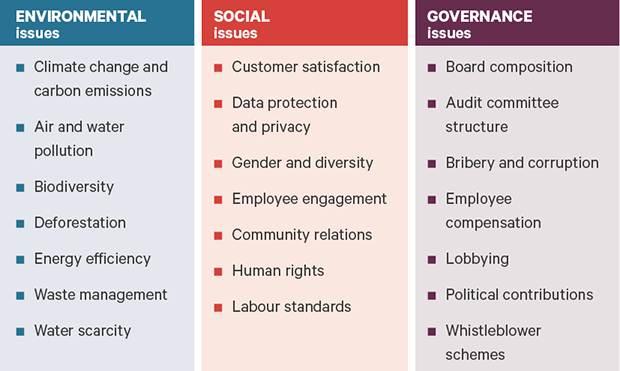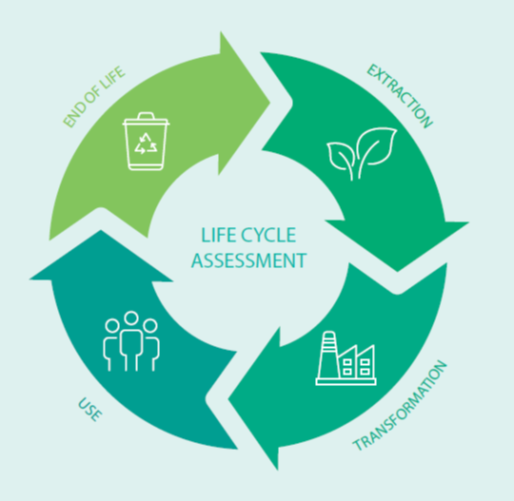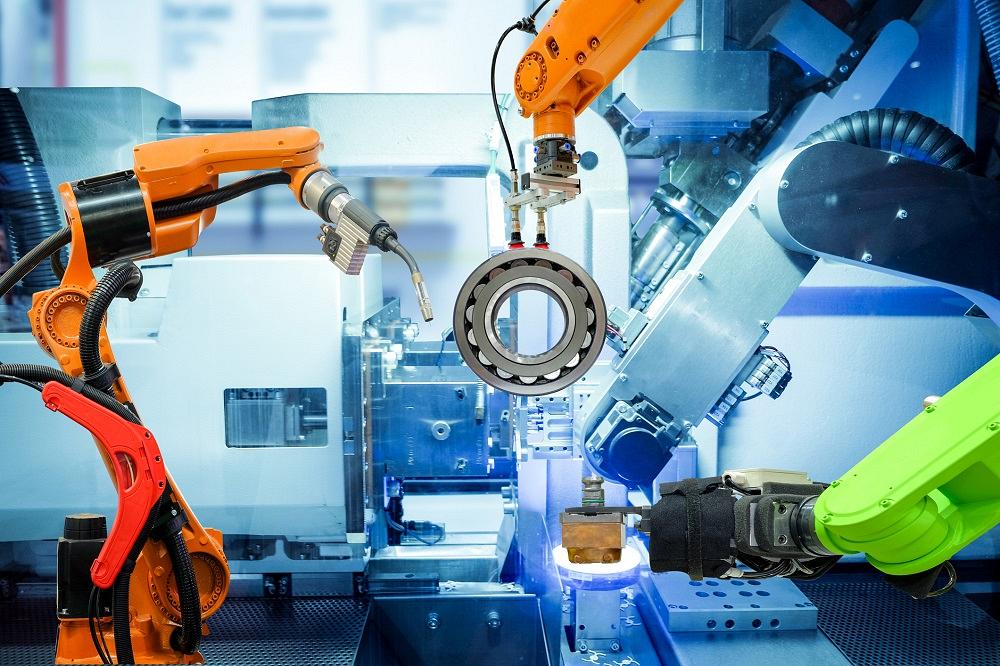- Chronologies of the Organization.
Natura is a company that has implemented sustainability since its creation. By the accomplishments of its sustainable vision and the rapid increment of environmental challenges nowadays, the Brazilian cosmetics company has joined many sustainable initiatives such as the preservation of the Amazon biodiversity, the elimination of hunger worldwide, the substitution of fossil fuels and energy efficiency based on public calls for proposals issued by the company and the notable reduction of GHG through the company’s value chain activities. In taking action to the challenges brought from industrial activities to the environment, Natura has created two programs which are Carbon neutral and the Amazonia Programmes. The Carbon Neutral Programme remunerates the families of smallholders not only for the purchase of ingredients and benefit sharing, but also for environmental conservation services. This program has improved human health, community development, job generation, increased education and training, as well as increased ecosystem services. Together with the direct investment made in the purchase of carbon credits, the company’s positive socio environmental impact totals R$ 1.6 billion. The goal of this programme is to eliminate deforestation completely in RECA (Cooperativa de Reflorestamento Econômico Consorciado e Adensado) by the end of the 25-year project. By similar means, Natura develops its second project called Amazonia Programme, which has a direct impact on reducing poverty, hunger, and infant mortality. The program also provides good health and well-being to the communities, quality education and clean water and sanitation. One of the most significant systems of the Amazonian Program is the agroforestry systems that ensure the food security of the communities involved. These systems also known as food forest, generate income for local communities, while guaranteeing food security and forest preservation. Combining the Carbon Neutral and Amazônia programmes enabled Natura to develop its first internal project to pay for the compensation of carbon within the company’s own production chain.
Lastly, Natura has also contributed to fair trade with communities that work for them in the farming sector where they get their raw material from. In an effort to combat social inequality, Natura promotes improvements in public education through Instituto Natura. The Natura Institute manages the funds raised by the sale of the Crer Para Ver product line and the income generated from its sales is invested in multiple projects to improve the quality of public education in Brazil and in the countries in which the company has operations in Latin America. More recently, the Natura institute has developed educational initiatives for the Beauty Consultants. Growth in Education programme was developed to include face-to-face or distance learning degree, postgraduate, language and vocational courses, among others primarily joined by Natura consultants and customers. As an eco-branding company, Natura’s products are made from plant’s ingredients and when manufacturing their packaging the company uses eco-friendly bioplastic packing and it utilizes materials extracted from the sugar cane for their container refills and bottles distributed throughout the company’s product lines. Natura as a pioneer sustainable company can increase the benefits obtained through its value chain activities to better off the life standards of people and planet.
II. Data: Frameworks
Sustainability Strategy
Natura is an eco-brand company that has adopted an eco-efficient sustainable strategy for the production and distribution of their products, through which the company has gained agility to remain abreast of the rapid changes taking place in the world and the transformations of the company itself. Some implementations of Natura’s eco-efficient strategy are the non-used of animal testing in their products, the elimination of polyethylene microbeads from their risible products and replacing them with biodegradable exfoliates made from rice and bamboo, and the rigorous quality controls of the company, which are the health, safety, and performance requirements for their R&D of their products, raw materials used, and the final presentation of their products to the customers, for which Natura implements eco-packing as part of their final product. Through the development of its sustainable strategy, Natura generates a positive environmental impact in addition to reducing and mitigating the effects of its activities, and the promotion of their social, environmental, economic and cultural welfare. The positive aspect that companies such as Natura are taking from being an environmentally friendly company is the profitability factor. As companies become more sustainable, people get to better know the brand and lately buy their products because customers nowadays are more aware of the positive impacts that industries should bring to the society as a whole and are more likely to buy from companies that support sustainable social biodiversity-oriented business.
Stage of Sustainability
Natura is at the third stage of sustainability which is the creation of sustainable products and services. Natura uses sustainable materials (recycled and recyclable) when manufacturing their product packaging. The company also uses 100% eco-friendly bioplastic for their conditioner refills and blotters, which is made from sugar cane. Another example could be the non-used of parabens in their products which can harm fertility and reproductive organs, affect birth outcomes, and increase the risk of cancer. Natura implements a 100% organic alcohol initiative in their products, which is extracted from a variety of sugar cane, selected for its resistance to parasites. This produces an exceptional crop, grown without the use of synthetic pesticides or fertilizers, and as a result carbon emissions are reduced by 20%. In this way we can also say that Natura is seeking different ways of doing business by having sustainable products that have a positive impact on the environment and people.
ESG Issues
The most important ESG issues Natura faces are Product Quality & Safety, Customer Welfare, Selling Practices & Product Labeling, Business Ethics, Management of the Legal & Regulatory Environment, and water & wastewater Management. The company strictly controls the production process of products, and devotes itself to ensuring the safety and health of customers from product research and development to product release. It keeps constant attention to the cosmetics industry, develops corresponding business models by investigating consumers' preferences and consumption patterns and combining its value proposition and strategy, and conducts annual reviews. Natura has been rated as one of the most ethical companies in the world by Ethisp Association for the fifth consecutive year. They worked hard to establish a complete and transparent internal environment between customers and suppliers. In 2017, they obtained the seal of Empresa Pro-Etica (Pro-Ethical Company) organized by Brazil's Federal Audit Agency and Instituto Ethos. They completed Natura's water footprint study and incorporated ecological toxicity assessment into product safety assessment.


Life Cycle assignment (LCA)
As life cycle-thinking has become more popular between corporations, Natura earmarked specific actions to be taken in future to improve data collection, such as developing site-specific models for its ingredients, for example the “agroforestry system cultivation” of palm oil. Natura’s palm oil is obtained through sustainable farming, in a way that it has replaced its ingredients of animal or synthetic origin with ingredients of plant origin. During its life cycle this palm oil releases only 25% of the CO2 of a petrochemical oil. Natura is a carbon neutral company, which systematically reduces greenhouse gas emissions at every stage of its product life cycle, and systematically compensates for the emissions necessary for its operation.
Being Natura an international company that operates in seven countries, the company has proven itself enthusiastic to manage the environmental impacts of all its products. According to the Life Cycle Initiative, Natura expressed “it considers the complete life cycle of products, starting from raw materials extraction (cradle), through the industrial production stage, distribution, use and disposal (grave).” The company developed their operation activities in two parts: a bottom- up approach considering both upstream supply chain and downstream activities such as transport and end of life phases, as well as a top- down approach, taking into account the impacts of corporate activities. The results of Natura using the LCA approach, show that major impacts are concentrated in the extraction and production of ingredients and packaging, followed by the use phase that demands water and energy to use rinse-off products. The main impacts of Natura’s activities are land use, fossil depletion, and climate change, due to the amount of ingredients of plant origin (particularly palm oil), transportation, and plastic for packaging materials (Life Cycle Initiative, 2018).


Disruptive Technologies
Natura implements the usage of some disruptive technologies for the development and distribution of their products. The mainly two disruptive technologies Natura have utilized for their eco-efficient production are 3D printer and 3D Skin printer. 3D printers were first installed in the factories in Cajamar (São Paulo), this new technology is capable of producing permanent plastic parts to replace damaged machinery components. Prior to this, it was necessary to acquire new parts from suppliers which was more costly for the company and had a major impact on climate change as well. By similar means, 3D skin printers were implemented to enable R&D into irritation and allergies for some product lines, the company mainly used this technology in the development of fragrances, soaps and exfoliantes.
Some other disruptive technologies Natura implement are IoT, Augmented reality (AR), electric cars and robotics. The company has developed IoT systems that predict deviations in the reactors and packaging lines and thus improve production performance, as well as software that simulates production processes and helps to map opportunities for optimization. Natura has joined digital reality performance as part of it sustainable innovation solutions, Augmented Reality (AR) has been used for the company in the development of the Amazonia Programme called NINA (Natura Amazonia Innovation Nucleus), which consist of science and technology hub that prioritizes the development of innovations and technologies which may be applied in social biodiversity production chains and in the company. Robotics had been also introduced on the packaging line of the Natura Plant production line. Robots can operate in processes such as fitting lids and valves, activities that require repetitive movements. Besides implementing disruptive technologies only in the business process of an industry, Natura also extended to sustainable delivery for the final distribution of their products, electric cars and ethanol-powered buses are used by the company for means of transportation of employees and product’s delivery outside the urban area. For product deliveries in the urban areas of Sao Paulo the company uses bicycles as a way of transportation that benefit both, the company because it reduces transportation costs and at the same time reduces GHG emissions substantially. For cargo transportation, Natura essentially uses maritime transportation instead of air freight.
Circular Economy
Natura is a company that has embraced the principles of the circular economy. First, Natura uses materials that can be easily recycled, products that can be certainly repaired and remanufactured such as the refill packages, eco friendly bioplastic, reusable gourdes and recycled cardboard. Secondly, Natura keeps products and materials in use. The company’s system Hub was specially developed for Natura to transport finished goods from its own and third-party factories. The company hopes to eliminate and guarantee a clean destination for products from Amazonian fruits, oils and berries that are used to produce its cosmetics. Natura only uses an oil extracted from the small seeds of passion. It hopes the juice industry can use the pulp, and that the seed husks and skins can be used as biomass to generate clean fuel. Thirdly, part of the circular economy involves the use of natural resources, such as the using 100% organic alcohol in their products lines, which is extracted from a variety of sugar cane and the usage of palm oil extracted by Agropalma plants. During its life cycle this palm oil releases only 25% of the CO2 of a petrochemical oil. Natura is a carbon neutral company, it systematically reduces greenhouse gas emissions at every stage of its product life cycle, and systematically compensates for the emissions necessary for its operation.
Systems Thinking
System thinking can contribute to the understanding, communicating and addressing sustainability issues in management. Natura has applied open innovation system thinking in an enterprise scope by the creation of “Cocriando Natura” and “Natura Campus” which are platforms where consumers can engage in “journeys” to address a problem or question. Natura has also applied system thinking by supporting projects and programs to have a dynamic system. For example: Efficient Stoves Programme, and the purpose of this program is to enable the reduction of greenhouse gas emissions and the degradation of forests, as well as diminishing the occurrence of health problems from the inhalation of smoke in homes. As part of their system thinking approach, Natura has also implemented reductionism on water waste where they develop a packaging that has a lower environmental impact and promotes conscious consumption. As well, by the implementation of system thinking Natura creates a quality environment for their employees when it comes to interaction, client to customer. Also for its environmental means, the company has created their dynamic system called Agroforestry System (AFS) for cultivating palm oil which reduces the CO2 emissions in the environment.
Information Systems
By being Natura at the third stage of sustainability, the information systems implemented in the company need to consider market-oriented information assets, such as reports and data provided by social media, comparative advantage information with partners and similar products, consumer purchase preferences and complaint data. However, in a more in-depth investigation, we have found that Natura also had various attempts in the fourth and fifth stages. In 2018, Natura promoted its digital relationship sales model, which is different from the previous sales model. The digital relationship sales model established through the Internet sales platform and online guidance by virtual consultants has reached the change of the fourth stage business model and the establishment of the practice platform in the fifth stage. In the same way, Natura's online sales platform has become the best e-commerce platform in Brazil and expanded its business to Latin America, the United States and Europe. In the fourth stage, the information system needs to consider the assets of changing business models, such as online staff training, while in the fifth stage, it needs infrastructure flexibility and platform conversion assets, such as smartphones and application platforms, mobile websites and consulting platforms.
Natura's artificial intelligence system has helped consultants and sales teams deal with any problems related to credit and payment records. Consultants or clients can choose to talk with it to deal with some complex problems. This information technology can be used to maintain communication with customers and collect sales data to help analyze market information, which can be classified as automated assets to help companies automate business processes more efficiently, or as information assets to provide necessary data for enterprises to make decisions.
For the development of the industry, Natura has also implemented ERP and EAI for integrated management solutions for the enterprise. The best example is the Natura Start-ups Programme, a platform created to enable and accelerate innovation opportunities by means of our interactions with start-ups, as a result the company have explored innovation in a number of areas with these companies, such as: treatment and diagnostics for skin, the body, the face and hair; new materials and ways of applying labels to packaging; IoT and the generation of new businesses; cosmetic ingredients and biodiversity active ingredients; and augmented reality solutions to facilitate work for the consultants.
Moreover, for the company logistics, Natura has relied on the experience of SSI Shaffer to plan and implement various logistics solutions for the automate storage and picking of orders. Natura uses a logistic software called Lamas for their warehouses Hub, which is the latest project implemented as a part of the partnership between SSI and Natura.
Natura's artificial intelligence system has helped consultants and sales teams deal with any problems related to credit and payment records. Consultants or clients can choose to talk with it to deal with some complex problems. This information technology can be used to maintain communication with customers and collect sales data to help analyze market information, which can be classified as automated assets to help companies automate business processes more efficiently, or as information assets to provide necessary data for enterprises to make decisions.
Lamas controls and optimizes all operational processes such as the automatic truck loading system. Natura designed the Natura network, which accounts with twelve distribution centers and three hubs, the largest, with a total construction area of 35,000 square meters and the capacity to store 3.6 million bins, which feed the other hubs as well as all international operations. The company has also joined the Green Supply Chain Management (GSCM) which involves the products, production and logistics of the entire supply chain, saving energy and reducing emissions in practice.


Crowdsourcing
Natura is a company that uses many of the six types of crowdsourcing, the first is crowd labor and crowd creativity, an example of this can be “Cocriando Natura” is a platform where consumers can engage in “journeys” to address a problem or question. The platform allows users to collaborate online and through face-to-face meetings, and leverages gamification and recognitions to encourage users’ contributions. The ideas are used as inspiration sources by the internal teams.” ("The Beauty of Crowdsourcing") and “Natura Campus” is a platform that targets college students, bringing the company closer to the best universities in the country. The initiative allows students to submit their ideas and follow up on related projects. On the other hand, for such a well-known beauty company I recommend that they should implement crowd innovation because “currently one of the company’s main challenges is migrating from its traditional direct-selling channel to a multi-channel approach. meaning that the company has to be more open minded to more modern ways to run their business, in order to become more successful.




No comments:
Post a Comment